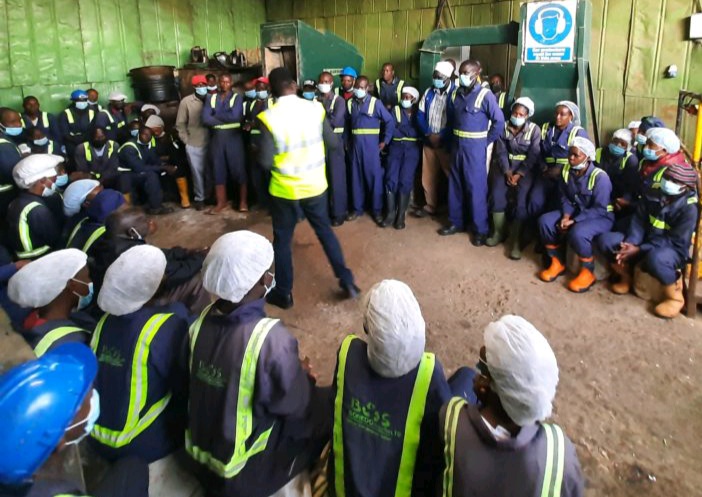Written by Victor Kisaka
The world as we know it now is on the verge of extinction. Will the plants, rivers, oceans, and terrain in which we currently live be preserved, or will future generations be left with just a desolate environment as a legacy of a civilization that failed to take the essential steps to keep the land alive, as it has for hundreds of millennia?
According to the findings of several studies, man’s involvement in various natural processes on the earth should be decreased as much as possible to avoid potentially disastrous impacts such as rapid climate change, soil and water contamination, air pollution, and tiredness.
Farmland has an impact on us because it alters economic situations such as agriculture and tourism, as well as human health, which is endangered by heatwaves and new illnesses.
Many nations around the globe have developed specific committees for environmental protection and special legislation as a result of the first international conference, which was supported by many countries.
Indeed, public awareness efforts on the need for environmental conservation are being heeded, and we are beginning to adopt energy-saving practices and collaborate in the restoration of ecological equilibrium.
Thus, on June 5, World Environment Day, various communities participate in public initiatives such as replanting, cleaning up a damaged place, or just learning about and appreciating nature… all to raise public awareness about the danger of environmental devastation.
Control or rectification measures, both in industry and in other sectors, are becoming more common for me to use to avoid environmental contamination; purification of the pollutant source, environmental impact studies of new products or projects before their mass consumption or execution is authorized.
Following that, waste management companies such as Boredo Supplies Ltd have come up with strategies to reduce environmental pollution through effective waste management practices. Furthermore, I offer certain environmental conservation strategies that will help us to avoid or postpone environmental degradation and allow us to breathe without being exposed to polluting agents:
Recycle the paper: Remember to utilize both sides of the paper before recycling it.
Additionally, you may purchase recycled paper to help conserve forests.
There are now tree farms dedicated solely to the manufacturing of paper, preventing forest devastation.
All of those notebooks or pages that you use and toss away, on the other hand, can have a second life if you utilize them entirely or recycle them by taking them to the paper and cardboard receptacle.
Save water by not wasting it: The most essential thing you can do to save water is not squandered it.
Have you ever brushed your teeth while the tap was running?
Do you turn off the water when soaping up in the shower?
Water is such a critical part of nature for our life that we should not squander it.
There are a few habits that might assist you in conserving water at home.
Simply switch off the water while brushing your teeth or getting ready in the shower.
Pulling the toilet chain with half the load, shutting the water tap slightly to reduce the amount of water that drains, or switching from a bathtub to a shower tray are all gestures that will save you money on your water bill.
If you aren’t using your gadgets, turn them off:
Leaving electrical gadgets such as laptops or televisions on wait is a common practice.
The standby mode, on the other hand, continues to use energy.
At this time, our recommendation is to switch off any household electrical equipment when not in use.
It is ideal if you detach them.
You may also save power and water by waiting until the washing machine or dishwasher is full before plugging them in.
Save money on heating and cooling: Don’t waste money on heating and cooling.
Abusing too hot a temperature at the workplace or home is a waste of energy and a health hazard; during cold weather conditions, a temperature of around 20 degrees is recommended.
The more heating or air conditioning you use, the more electricity you need, and power plants generate more CO2 into the environment as a result.
Make the most of natural light by turning off any non-essential lights in your home.
Make the most of natural light rather than relying on electricity.
Rather of relying on artificial light, we should alter our schedule to maximize the hours of sunshine.
It is only up to us to make a difference for future generations to live in a healthier and more accepting environment.

